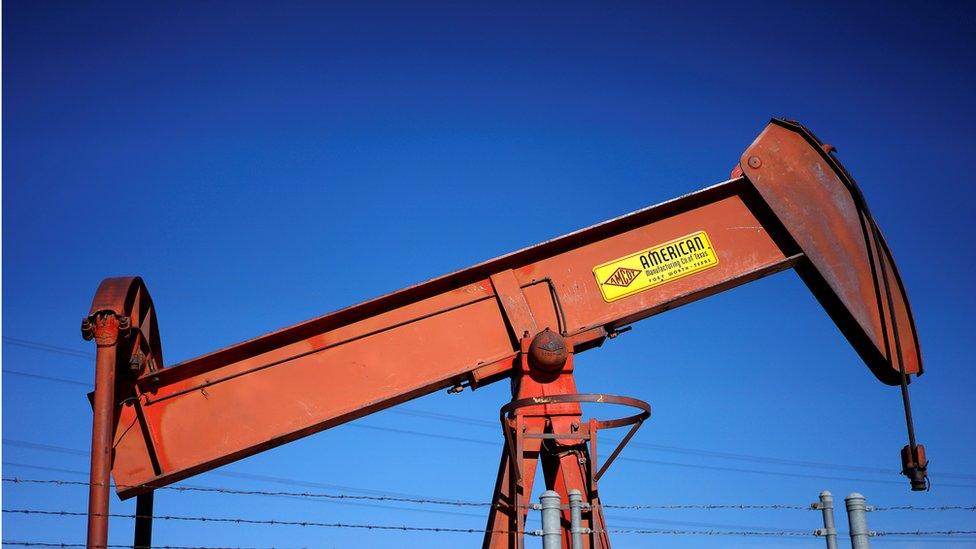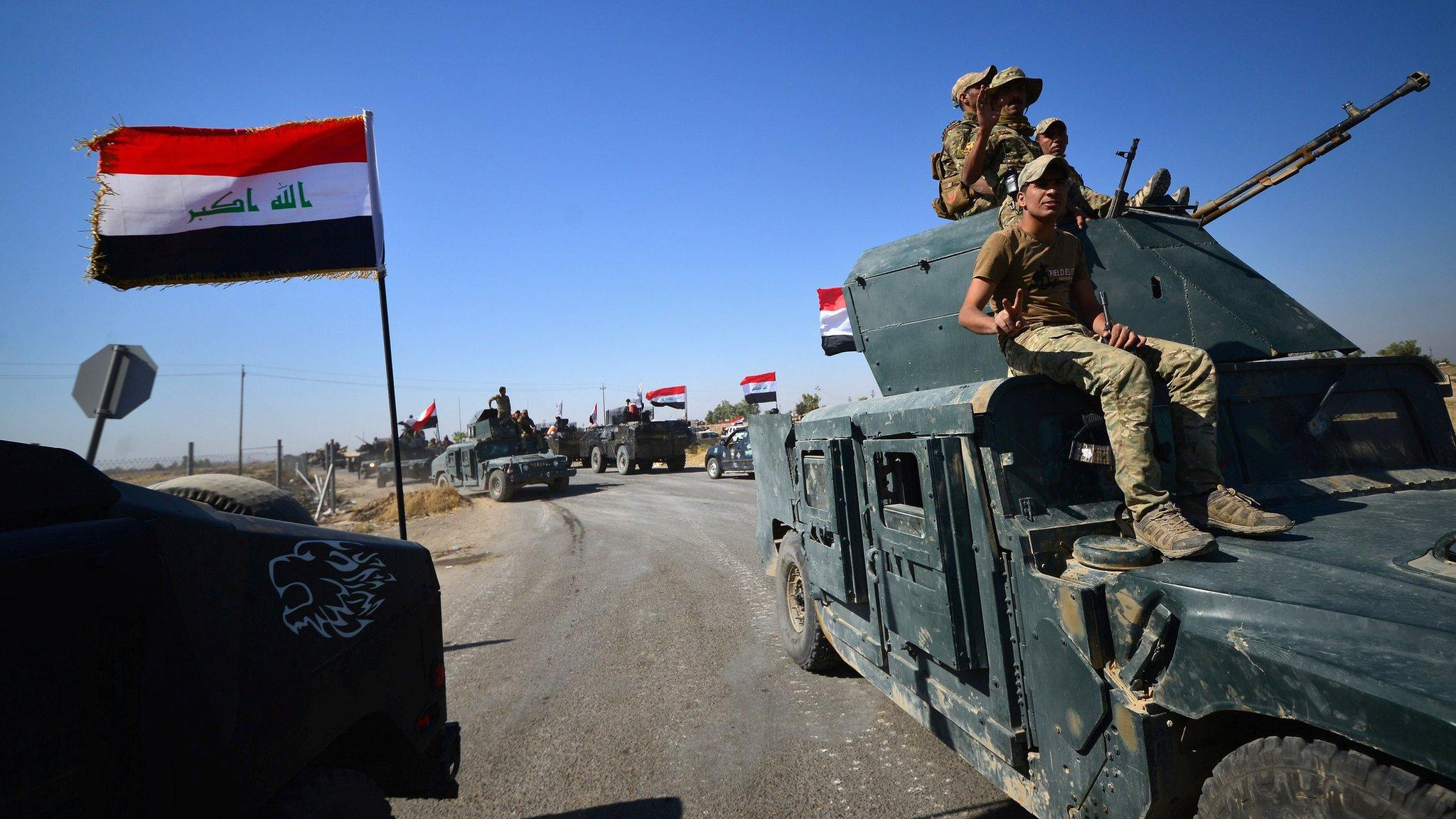Oil prices rise amid Iraq tensions
- Published

Concern over oil supplies from Iraq has pushed crude prices higher as the country's government continues its move against Kurdish forces.
The price of Brent crude rose 1.2% to $57.80 a barrel, while US West Texas Crude climbed 0.8% to $51.90.
Iraq has the second largest output in the Opec oil producers' cartel.
Iraqi officials say they have seized oil installations near the disputed city of Kirkuk, but Kurdish officials deny this.
The country's oil ministry said oil and natural gas production in the region remained normal and that there was "an agreement with some Kurdish leaders that the oil and gas facilities should stay out of the conflict".
The military operation was launched on Sunday amid growing tensions after people living under Kurdish control voted overwhelmingly for independence in a referendum last month.
Opinions among analysts were mixed, but Neil Wilson at ETX Capital said Brent prices might struggle to push significantly higher than $60 a barrel because clashes were "unlikely to spark wider disruption to supplies from the Middle East".
Concerns over potential US sanctions against Iran also helped to push up oil prices after Donald Trump said on Friday he would not certify that Iran is complying with a nuclear accord agreed under the Obama administration in 2015.
Under US law, Congress now has 60 days to decide if fresh sanctions should be imposed against Tehran.
Around one million barrels a day were cut off from global markets during previous sanctions against Iran, according to Reuters.
However, the US is the only signatory of the deal to express hostility towards it leading some analysts to predict any future sanctions would have a comparatively low impact on oil prices.
- Published16 October 2017
